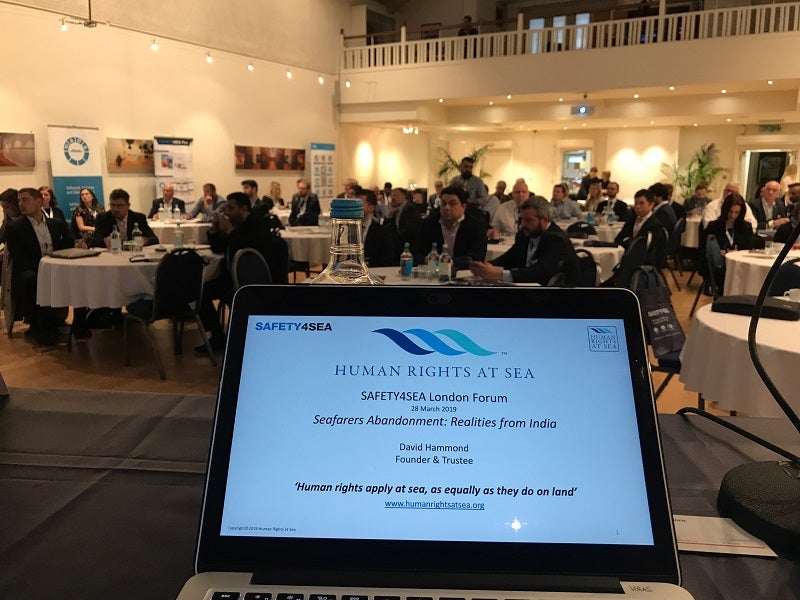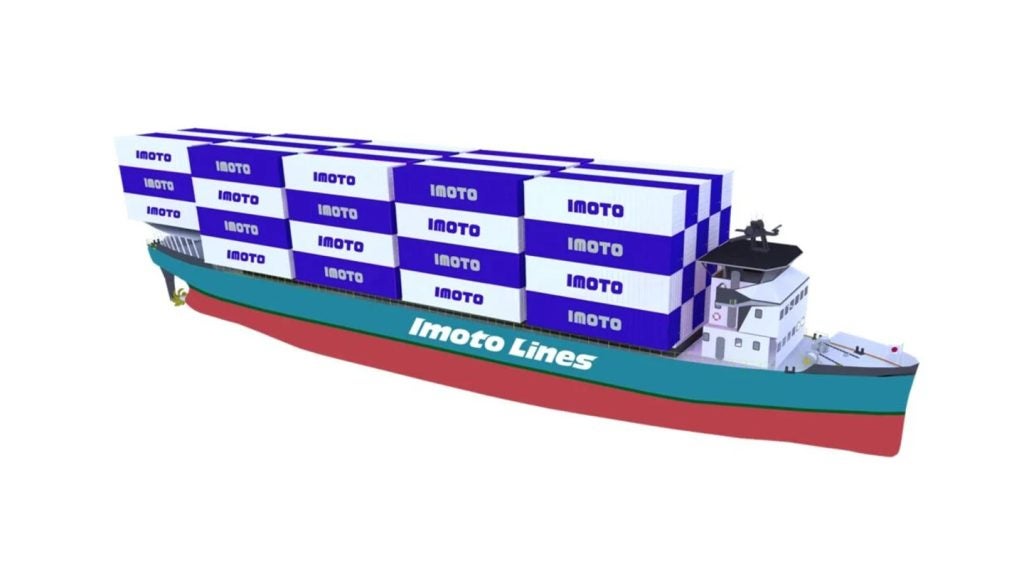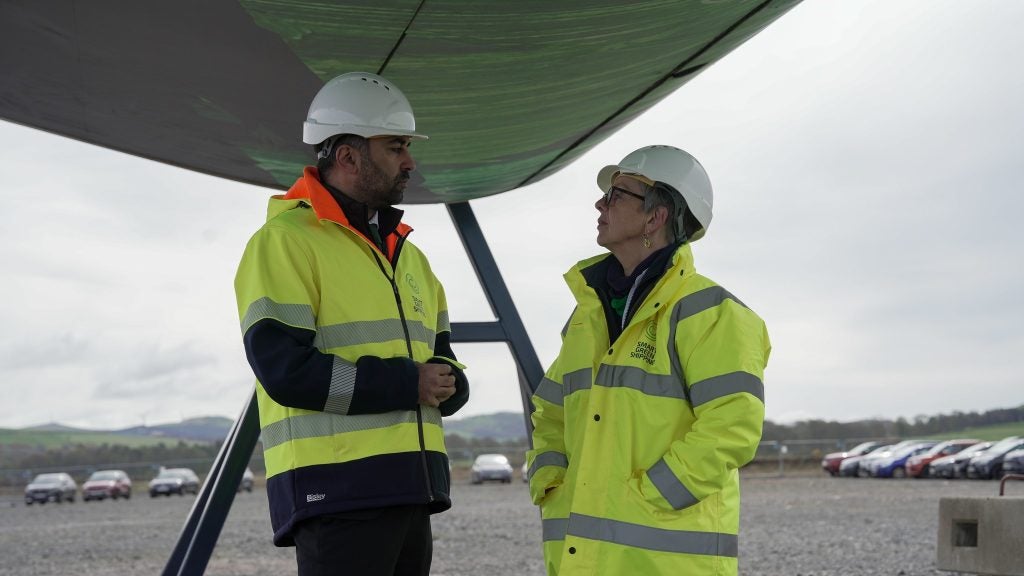
On 21 May 2019, the City of Geneva formally signed and endorsed the ‘Geneva Declaration on Human Rights at Sea’. UK-based charity Human Rights at Sea (HRAS) has been campaigning for the creation of a soft law, which has been developed into this declaration document to ensure that human rights for all individuals are respected in the maritime environment. This includes the ‘high seas’, which are beyond territorial jurisdiction.
“This is not a new law,” explains HRAS founder David Hammond. “What we’re doing is restating existing international law from a number of bodies of law.”
The human rights declaration draws from a number of legislative sources, including refugee law (with the 1951 Convention relating to the Status of Refugees as the foundation), international human rights law (IHRL), existing maritime labour laws (the Maritime Labour Convention, also known as the Seafarers’ Bill of Rights), and international humanitarian law (IHL). But why is it needed?
A soft law for human rights at sea
Hammond, a former barrister, says he was working on a legal case back in 2013 when he discovered he could only find academic narratives relating to human rights at sea. “Of course, we had labour rights which look after the fundamental workers’ rights at sea,” he says, “but remarkably no human rights at sea. Today we are the only civil platform profiling them.”
Hammond launched HRAS in 2014 and it became a charitable non-governmental organisation (NGO) in 2015. “Human rights from the maritime perspective have only really come about in the last eight years,” he says.
Dr Sofia Galani, who is on HRAS’s non-executive board of advisors, says there are several reasons for this. After the 9/11 attacks in 2001, states realised that the maritime industry was also vulnerable to terrorism. Initiatives allowing naval forces to stop, search and refuse port entry to ships brought about an increasing number of arrests and detentions of seafarers.
How well do you really know your competitors?
Access the most comprehensive Company Profiles on the market, powered by GlobalData. Save hours of research. Gain competitive edge.

Thank you!
Your download email will arrive shortly
Not ready to buy yet? Download a free sample
We are confident about the unique quality of our Company Profiles. However, we want you to make the most beneficial decision for your business, so we offer a free sample that you can download by submitting the below form
By GlobalDataIn the last decade, the threat of Somalian piracy was also on the rise. Some were ex-militiamen and former fisherman who discovered lucrative incomes hijacking vessels and demanding ransoms for passengers and seafarers. European Naval Force data shows that these attacks were at their highest from 2009 to 2011, but subsided again after international naval deployments vastly reduced the number of incidents.
Another significant problem is the global refugee crisis. Today there are 68.5 million forcibly displaced people who fled war-torn countries (6.3 million from Syria alone), risking their lives in smugglers’ boats in search of peace in Europe across the Mediterranean Sea. Although the number of deaths has dropped since the peak of the crisis from 2014-2017, there were still six deaths a day last year in the Mediterranean and many distressed and sick people were kept at sea for days waiting for permission to disembark. This usually comes only after states have agreed to relocate those who have been rescued.
A new trend sees refugees avoiding the search and rescue (SRR) area of Libya, and pushing further to Malta or Italy instead, as the majority of rescued refugees in this territory are held in detention in poor conditions in Libya. The UN is calling for a more coordinated and responsible response to refugee rescue operations at sea.
Legal and practical obstacles to human rights
The international treaty of the United Nations Convention on the Law of the Sea (UNCLOS) was adopted in 1982 and became the legal framework for the maritime industry. Within it, state jurisdiction borders are defined – the Territorial Sea (12nmi), Contiguous Zone (12nmi) and Exclusive Economic Zone of States (200nmi) – and beyond these lies the high seas.
Covering 64% of the ocean’s surface and 95% of its volume, this is an area where no state has jurisdiction, although Flag State Jurisdiction – where the ship abides by the laws of the country the ship is registered in – remains the general rule.
International human rights law is applicable to Flag State jurisdiction and states are obliged to ‘protect’ and ‘fulfil’ individuals against human rights abuses, meaning they must proactively ensure individuals have their human rights respected. However, flags of convenience (FOC) – when a ship is registered in a different state to the owner’s – can complicate matters and, naturally, pirates operating ships illegally won’t be registering their vessels at all.
Hammond explains that one of the issues is that UNCLOS does not explicitly deal with human rights. He points out that Article 293 (defining ‘Applicable Law’ for the ‘Settlement of Disputes’) states “a court or tribunal having jurisdiction under this section shall apply this Convention and other rules of international law not incompatible with this Convention”.
This is why he believes the Geneva Declaration on Human Rights at Sea is so crucial. “We want a global lexicon of human rights at sea,” he stresses. “Our founding principle underpins everything: that is that human rights apply on sea as they do on land.”
This goal is what Hammond and his small and committed pro bono team – who have produced 60 publications and 36 case studies demonstrating the importance of having a declaration devoted to human rights at sea – have been working towards since the organisation launched.
Achieving success at national level
Hammond and his team are hoping that they are on course for a breakthrough now that the Geneva Declaration on Human Rights at Sea has been formally recognised in Geneva.
Another major turning point for Hammond in getting Human Rights at Sea to be recognised by states happened in India earlier this year. Hammond was invited to attend and speak at a national-level seminar held by the Forum for Integrated National Security (FINS) think-tank with Indian Government engagement.
“The Indian Government’s findings from that seminar are now potentially to be considered and included at [a] national level in India,” says Hammond. “The continued expansion of the ‘Human Rights at Sea’ concept must become an international shared effort. The leadership shown by the Indian Government should be an example to other states to open up the human rights at sea narrative.”
When it comes to the kind of human rights abuses that can happen at sea, the net is wide and fraught with complications. Ships can be owned and managed by different companies and belong to a different Flag State. They can carry armed guards and crew of many different nationalities, and the latter can experience lack of payment, poor food, unhygienic living conditions, having their communication blocked off with the outside world, abuse, and in some cases even torture and death.
“There has been a change in India and in the UAE related to seafarers because of our case studies,” says Hammond. “We supported the House of Lords foreign office over detained seafarers in India who spent three and a half years incarcerated and had we not been part of the repatriation team they’d still be languishing in a Chennai prison.”
Hammond is referring to the well-known Chennai 6 case, where former soldiers had been hired by US-based shipping company AdvanFort as armed security forces on anti-piracy ship MV Seaman Guard Ohio. Despite their arms being issued by the UK Government – so they could do their job and protect the ship from Somali pirates – when bad weather caused the ship to drift into Indian waters the soldiers were held unlawfully in prison and forced to live in terrible conditions. They also endured mental torture and physical abuse.
Hammond says that if the courts had respected the Indian constitution, if the gathering of evidence and due investigation had been conducted properly (without local politics within the constabulary organisations preventing transparency and lawful due process), and international human rights law had been respected, then the Chennai 6 would have been imprisoned for a shorter period than the arduous four years’ incarceration they experienced.
In another case, Josaia Cama, a fisherman from Fiji, said that he and six colleagues had to sleep in a 2m x 3m space on his employer’s fishing boat. One job involved working in a freezer (-40°C) and passing up frozen fish to the upper deck. Unfortunately, Cama had been given the wrong gloves and couldn’t feel his fingers as they were cotton thin. He was sent to hospital where his hands were placed in into hot water (instead of cold) and not long after he had to have his fingers amputated because of gangrene. He did sue and get a small pay-out, but cannot work anymore, so his family lives in poverty.
“In the Fijian case, it is key that our case studies, along with other evidence, has now been taken into account at state-level,” says Hammond.
So, what does the future hold for human rights at sea?
“We are at the start of a very exciting and vanguard initiative to provide independent support and considered development to human rights in the maritime environment,” says Hammond. “We are now seeking international state, business, academic, civil society and individual support to take it forward.”






